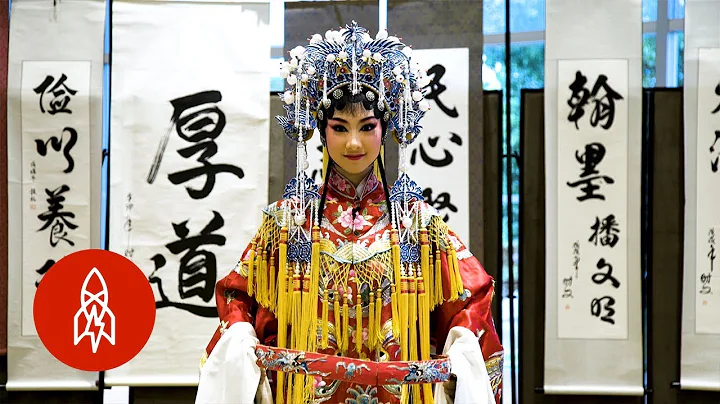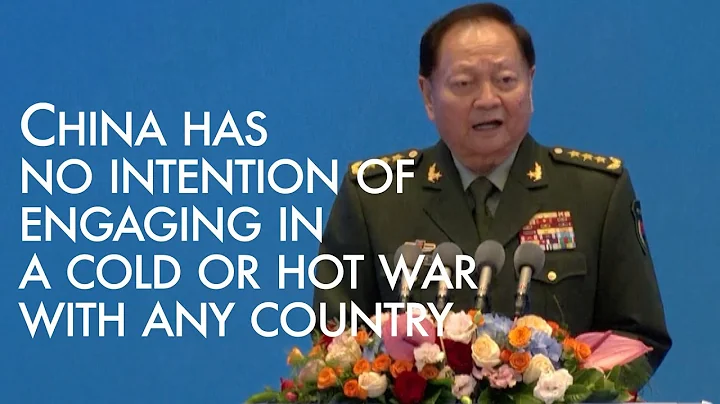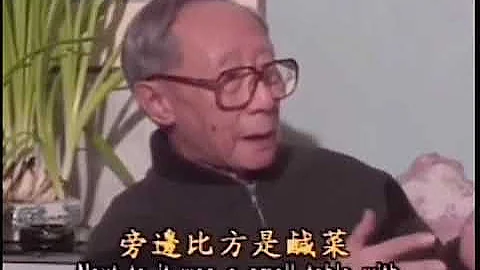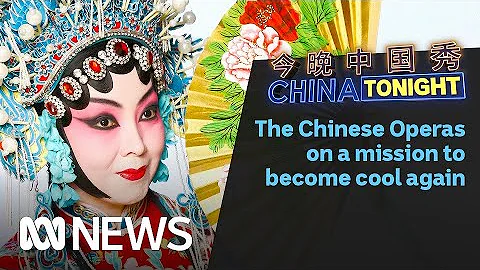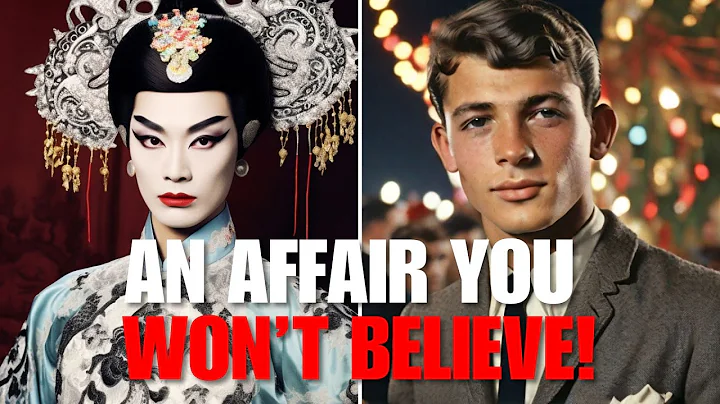In the last article, I pointed out that some Anhui people deceived readers by saying that Huangmei Opera was the name changed from the so-called "Wan Opera". Let's talk about this today.
As usual, let’s take a look at some pictures of Anhui people. See below.

Quoted from "Today's Toutiao"
There is the word "Anhui" in the lower right corner of the picture. After carefully identifying the words below, it is still unclear what the word is. Since some Anhui people often quote this picture, let's follow them For the time being, let’s regard it as the word “drama”. The three words
combined together are "New Anhui Opera". Since it is "New Anhui Opera", there must be "Old Anhui Opera". So what kind of opera is "Old Anhui Opera"?
To understand this, we must first understand what "Wan Opera" is.
What we generally think of as "Wan Opera" is not the original meaning of the word "Wan Opera".
"Wan", as the abbreviation of Anhui, has been around since the sixth year of Emperor Kangxi's reign in the Qing Dynasty when Anhui Province was established from the division of Jiangnan Province. It was named after the ancient country of Anhui.
In the history of the development of local operas in Anhui Province, "during the Ming and Qing Dynasties, Qingyang tune and Hui tune were successively successful. Each had its own merits and spread all over the world, becoming a vocal opera with great influence" (Jiang Aihua, "From Tradition to Modernity") ——Research on the Repertoire Construction of Huangmei Theater of Anhui Province (1953-2019)"). These two operas are the local operas in Anhui Province The earliest operas called "Wan Opera" in the history of operas in Anhui Province are called "old (old) Anhui operas".
The name "Wan Opera" originally refers to the representative local opera type in Anhui Province, rather than the name of the opera. This is what the "New Anhui Opera" in the
picture means. At that time, Huangmei Opera, which was still growing, could not be called "Wan Opera". Hanging this plaque was just a good wish.
Similar usages of the word have actually always existed in Anhui Province, such as the article "Anhui Opera Students Meet Bright Days Seminar Held in Beijing" published in " Anhui Daily " on January 1, 2018.
What really connects Huangmei Opera with "Wan Opera" is the "Anhui Wan Opera Troupe Badge" discovered in 2009, as shown in the picture below.

"In Anqing local authoritative historical materials, there is no written record of "Wan Opera". Only some old artists' memories of Huangmei Opera contain sporadic descriptions of "Wan Opera"" ( Zhang Jianchu, "From Huaiqiang and Fu were transferred to Anhui Wan Opera Troupe").
So where did this badge come from?
"In the 26th year of the Republic of China (1937), a group of folk artists who sang "Fu Diao Huaiqiang" rented the second floor of the Zhongxing Hotel on Wuyue Street in Anqing City. They had a fixed performance venue and the dispersed Huangmei Opera artists were able to gather together. Singing on the 'stage'. This is the first time that a singing form that has no official name has been seen on the 'stage', and it is also the first time that it has been performed in public in a busy city.
However, within a few days, it was performed in public. The reactionary military and police came to visit. While "Yu Laosi's Rebellion" was being performed, some plainclothes policemen seized on a few lyrics in the play and said they were "indecent" and arrested several of the main actors and sent them to a detention center. The enthusiastic audience expressed support for the artists, and they ran around to fight for an open trial in the court. At that time, an intellectual audience member sent a message to the actors: "The judge wants to ask you what kind of opera you are singing?" '. Chu opera can be sung, why can't our Anhui opera be sung? 'The actors got support and argued righteously in the court, and the audience in the auditorium finally supported them. The judge was speechless and announced his acquittal.
After they were released, these folk artists resumed their performances in their original places. At the same time, they also decided to name the art style they performed "Wan Opera" and carved the name. I got this 'Anhui Wan Opera Troupe Badge' ("China Business Daily," "The Stranded "Wan Opera"" on July 28, 2016)"
The above description of the performance is consistent with Zhang Jianchu's article "Cong Huai Tune," The descriptions in "The Government Transferred to Anhui Wan Opera Troupe" are basically consistent, and they should all be recorded from the dictation of Ding Yongquan ( Ding Laoliu).
"The idea of "Wan Opera" originated from the influence of the vigorous "Chu Opera" at that time. In 1926, the Northern Expeditionary Army went south, bringing many new ideas and concepts. The Huagu Opera, which was popular in eastern Hubei, was also Therefore, it was renamed Chu Opera and became a fashionable opera in Hubei. After the Northern Expeditionary Army entered Anhui, this view was also brought in. People in the cultural circle in the provincial capital were very excited and moved to name the popular local "Huaiqian" as "Wan Opera". ". The transformation of Huangmei Opera from semi-underground to public appearance has a lot to do with this" ("The Art of Huangmei Opera", Old Town Idler, "Tracing the Origin of Huangmei Opera: "Anhui Wan Opera Troupe""). The text
is probably the real reason for the production of this "Anhui Wan Opera Troupe Badge".
"Strictly speaking, the 'Anhui Wan Opera Troupe Actor Badge' is just an unfinished blank. It has just been pressed out and there are no final touches around it." "To make a badge, you need to process the mold first. After the mold is completed, you need to test it for one or two times. The effect of each blank seal will be judged. If the producer is satisfied, mass production will be carried out.
If the naming of "Wan Opera" is the consensus of Anhui's cultural circles, the opera circles that are more closely connected with it lack interest. Even during the Anti-Japanese War, various organizations in Anhui have been established. "During this period, Anqing Huangmei Opera actors, There are Pan Zehai, Ma Weixi, and Ding Laoliu and Ding Cuixia who came back from Shanghai. The performance was held at the Wanzhong Stage on Wuyue Street, but there was no mention of the Anhui Wan Opera Troupe." (Zhang Jianchu, "From Huaiqiang and Fudiao to Anhui Wan Opera Troupe").
Some Anhui people wishfully believe that "Wan Opera" in 1926 was the unified name of all opera troupes in Anqing, which simply ignores the facts. See below.

Quoted from "Today's Toutiao"
After such a long period of observation, it cannot be said that some Anhui people do not know the truth, but they will always carefully tamper with some facts. If you do not carefully compare the historical facts, you will not find out What is the problem, and these modifications are exactly in line with what they want to spread falsely and cover up the truth.
So, is the naming of Huangmei Opera after liberation really like what some Anhui people say, that it was Guilinqi who forcibly changed the name of "Wan Opera" to Huangmei Opera? See below.

quoted from "Today's Headlines"
Let's take a look at the real situation.
In 1952, an Anhui delegation went to Shanghai to participate in the East China District small play performance. "Before this performance, the East China Military and Political Commission issued a document to the Anhui Provincial Cultural Bureau, inviting local operas from Anhui to participate in the East China District small play performance, and required it to provide documents Formally apply for the types and titles of plays to participate in the performance.
Anhui Province attached great importance to this performance activity and organized and established the "Leading Group for Performances in East China". Yu Yun, the then chief of the Cultural Section of the Anhui Provincial Bureau of Culture, was one of the team members. Chief Yu convened Anqing Huangmei Opera professionals such as Zheng Lisong to discuss the performance of various operas and other related matters. Later, it was decided to recruit Anqing local opera actors from Anqing People's Theater and Anqing Victory Theater to organize a group to participate in the performance activities in Shanghai.
Anhui Province. When Shanghai reported the performance materials, they renamed ' Guoqi Opera ' to ' Lu Opera ' and 'Lahun Opera' as ' Sizhou Opera '. At this time, this happened again. An idea was to name the Anqing local opera "Wan Opera" and establish the "Anhui Wan Opera Troupe". However, someone later pointed out that "Wan" refers to the small opera in Caotai in Anhui. The development and popularity of Anqing are all in Anqing, and Anqing is no longer the provincial capital of Anhui. How can we form a 'Wan Opera Troupe'?' In the end, we could only choose the three words ' Huangmei Diao ' among the many titles for this opera. " ("The Art of Huangmei Opera", Pan Ying, "The Origin of the "Anhui Wan Opera Troupe Badge").
Regarding the "Wan Opera" among some Anhui people, although there are not many articles on it due to the lack of original data, there are still Anhui people who are studying it. In this article, I have quoted it clearly.
is a product of the times. Judging from the existing information, this name is a semi-finished product. It has no facts at all and has been used in official performances. It is like two words on a draft paper. It is history, but only history. It's just a small mark.


